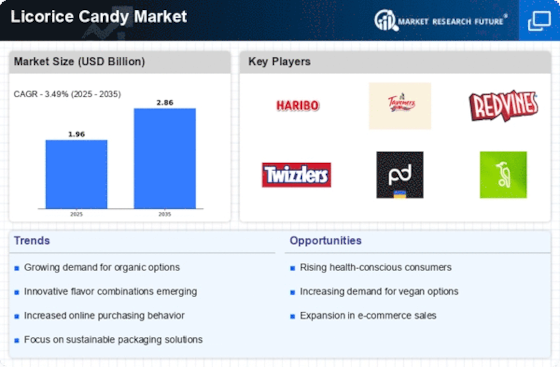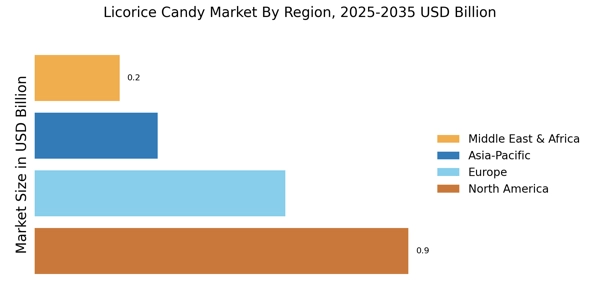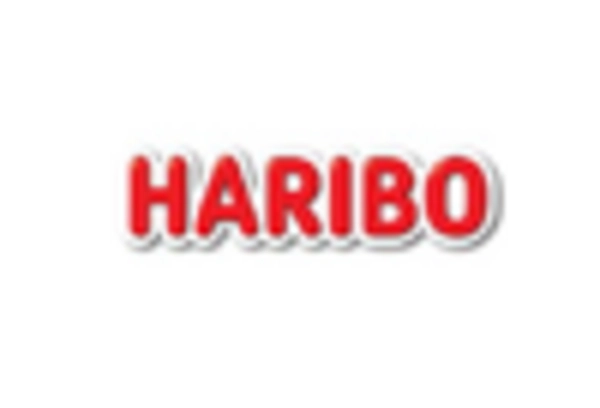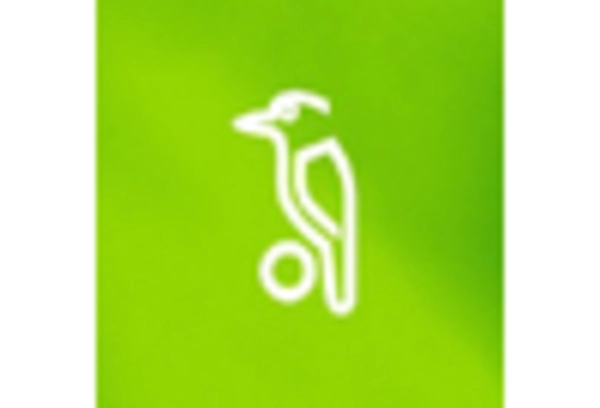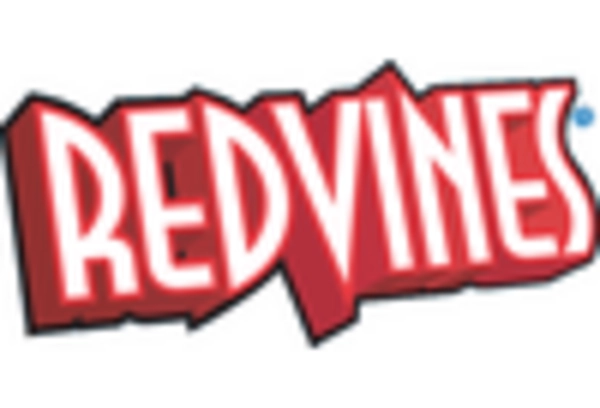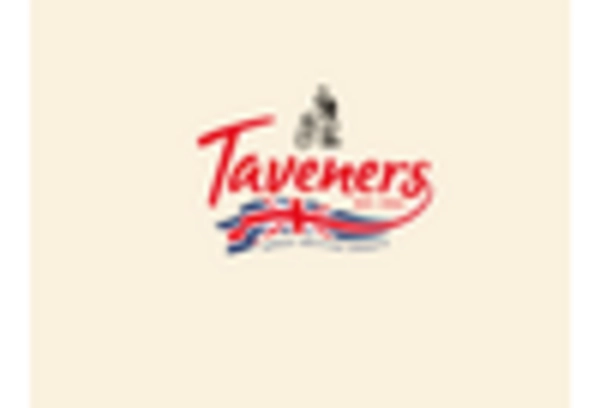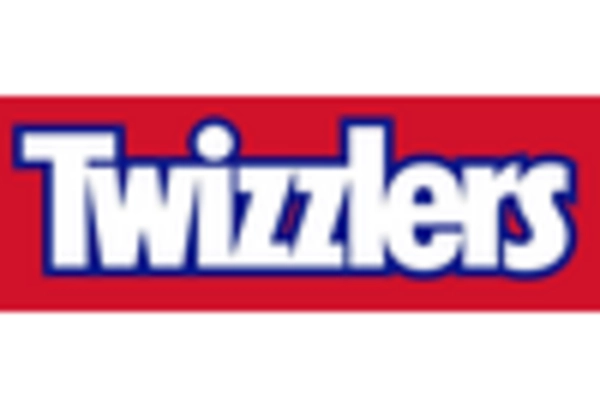E-Commerce Growth
The Licorice Candy Market is significantly benefiting from the rapid expansion of e-commerce platforms. With the increasing prevalence of online shopping, consumers are more inclined to purchase licorice candies through digital channels. This shift is driven by the convenience and accessibility that e-commerce offers, allowing consumers to explore a wider variety of products than what is typically available in brick-and-mortar stores. Recent statistics indicate that online sales of confectionery products have surged by over 20% in the past year, underscoring the importance of digital presence for licorice brands. As e-commerce continues to evolve, companies in the licorice candy sector are likely to invest in online marketing strategies and partnerships with e-retailers to enhance their visibility and reach a broader audience.
Health and Wellness Trends
The Licorice Candy Market is experiencing a notable shift towards health-conscious offerings. Consumers are increasingly seeking snacks that align with their wellness goals, leading to a rise in demand for licorice products that are perceived as healthier alternatives. This trend is evidenced by the introduction of organic and natural licorice candies, which often contain fewer artificial ingredients and added sugars. As a result, manufacturers are reformulating their products to cater to this growing demographic. According to recent data, the health and wellness food sector has seen a compound annual growth rate of approximately 8%, indicating a robust market potential for licorice candies that emphasize health benefits. This shift not only attracts health-conscious consumers but also encourages traditional licorice brands to innovate and diversify their product lines.
Sustainability Initiatives
The Licorice Candy Market is increasingly aligning with sustainability initiatives as consumers become more environmentally conscious. There is a growing demand for products that are produced with sustainable practices, including the sourcing of ingredients and packaging materials. Companies are responding by adopting eco-friendly practices, such as using biodegradable packaging and ensuring that their licorice ingredients are sourced from sustainable suppliers. Recent surveys indicate that over 70% of consumers are willing to pay a premium for products that are environmentally friendly, suggesting a strong market potential for sustainably produced licorice candies. As sustainability becomes a key purchasing factor, brands that prioritize eco-conscious practices may gain a competitive edge in the licorice candy market.
Gourmet and Artisanal Variants
The Licorice Candy Market is witnessing a burgeoning interest in gourmet and artisanal variants of licorice. Consumers are increasingly drawn to unique flavors and high-quality ingredients, which has led to the emergence of small-scale producers who craft licorice candies with distinctive profiles. This trend is characterized by the use of premium ingredients, such as natural flavorings and organic sweeteners, which appeal to discerning consumers. Market data suggests that the premium confectionery segment is growing at a rate of 6% annually, highlighting the potential for artisanal licorice brands to capture a share of this expanding market. As consumers seek out novel taste experiences, the demand for gourmet licorice is likely to continue its upward trajectory, prompting established brands to explore collaborations with artisanal producers.
Cultural Preferences and Regional Variations
The Licorice Candy Market is influenced by diverse cultural preferences and regional variations in taste. Different regions exhibit distinct preferences for licorice flavors and forms, which can significantly impact market dynamics. For instance, Scandinavian countries have a long-standing tradition of consuming salty licorice, while other regions may favor sweet varieties. This cultural diversity presents opportunities for manufacturers to tailor their products to meet local tastes. Market analysis indicates that regions with strong licorice consumption, such as Northern Europe, account for a substantial share of the overall market. As brands seek to expand their reach, understanding and catering to these regional preferences will be crucial for success in the licorice candy sector.


